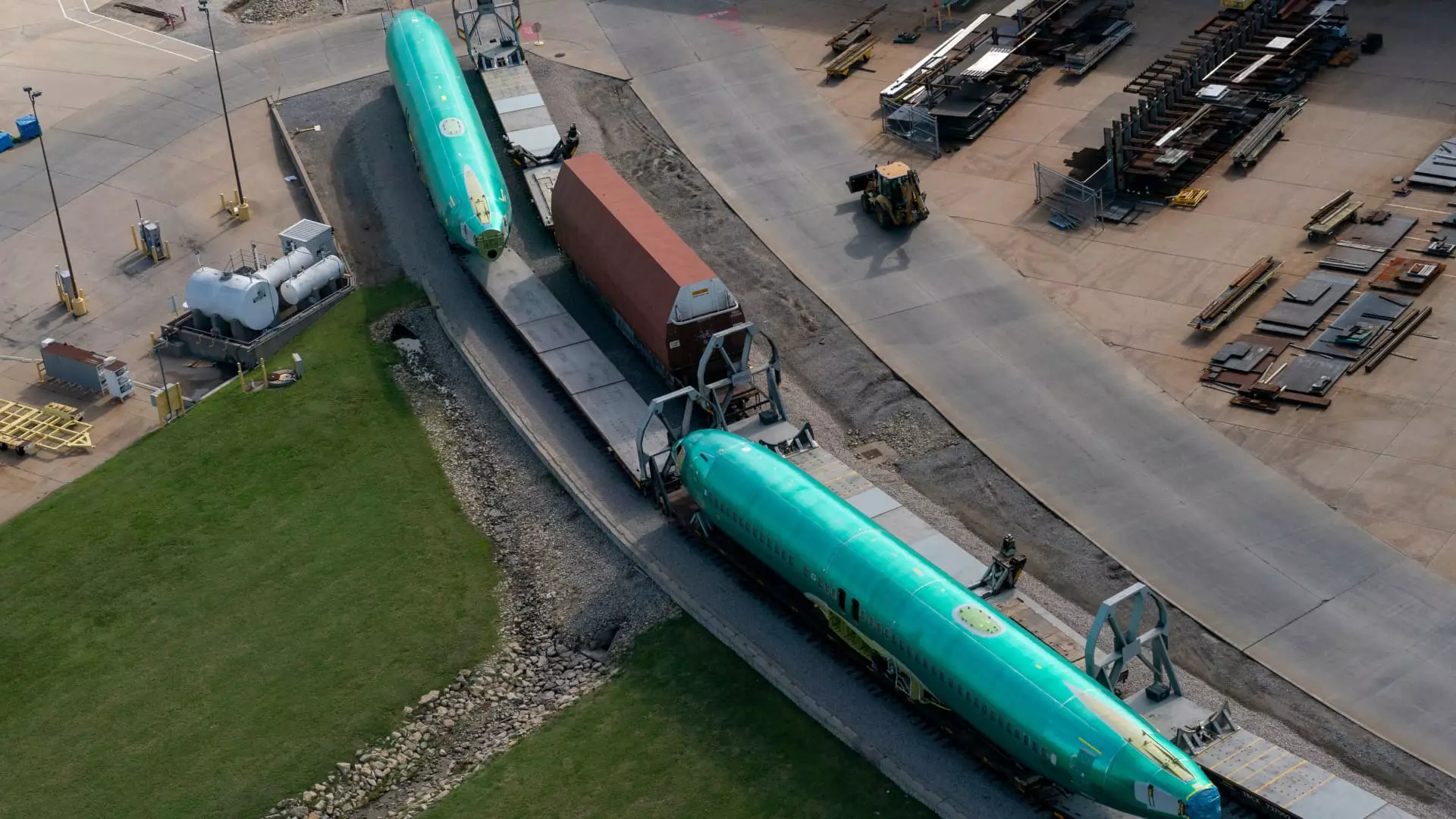The ongoing strike by Boeing machinists is causing significant ramifications for the aerospace industry, particularly affecting suppliers like Spirit AeroSystems. As the strike enters its sixth week, the prospect of furloughs or layoffs at Spirit has grown increasingly imminent, reflecting the dire state of the supply chain intricately tied to Boeing’s production. With Boeing’s best-selling 737 Max grounded due to halted manufacturing processes, the ripples from this labor action extend far beyond the factory floors.
Spirit AeroSystems, a prominent supplier to Boeing, has already announced plans to temporarily furlough approximately 700 workers at its Wichita, Kansas facilities. This decision, pending implementation next week, underscores the pressing impact of the strike on Spirit’s operational viability. If the strike extends past the critical date of November 25, further workforce reductions may be on the horizon. Spirit’s spokesperson Joe Buccino has indicated that no final decision has been reached, yet the implications are clear: prolonged labor disputes can threaten the survival of suppliers who depend heavily on production schedules.
The situation paints a troubling picture for the broader aerospace supply chain, which is still recovering from disruptions caused by the COVID-19 pandemic. Many suppliers, including Spirit, have previously expanded their workforces in anticipation of increased production demands. However, with Boeing’s operations suspended, the suppliers are now left in limbo, facing tough decisions about their workforce. This labor unrest also puts pressure on competitors like Airbus, which has experienced similar challenges, pointing to a systemic issue in the supply dynamics of the aerospace manufacturing industry.
As Boeing looks to finalize its acquisition of Spirit AeroSystems, the unfolding strike could complicate the transaction significantly. The relationship between the two companies is vital since Boeing requires Spirit for various essential components spanning its aircraft lineup. Any downturn in Spirit’s operations can have a cascading effect, not just hampering production but also straining financial resources. Spirit recently reported a staggering net loss of $477 million for the third quarter, more than double its losses from the previous year, casting doubt on its future stability.
Boeing’s new CEO, Kelly Ortberg, has emphasized the importance of reaching an agreement with the machinists, making this negotiation a top priority. The workers’ union has likewise expressed willingness to return to the bargaining table, indicating that a resolution may be on the horizon. However, until an agreement is reached, the uncertainty will continue to impact not only Boeing and Spirit but also the broader landscape of aerospace manufacturing. The fate of many workers hangs in the balance, reminding all involved of the fragile interconnectedness within the industry.
The current strike has highlighted vulnerabilities in the aerospace supply chain, demonstrating how labor actions can reverberate through entire ecosystems. With Spirit AeroSystems potentially facing additional furloughs, and Boeing’s production in jeopardy, it is evident that swift negotiations are crucial. Resolving the strike could restore stability not just for Boeing and its suppliers but for the industry as a whole, paving the way for recovery and future growth. As stakeholders watch closely, the hope remains that a viable agreement can be reached to minimize the fallout from this labor disruption.

